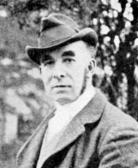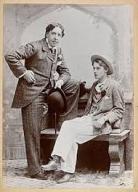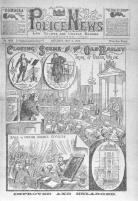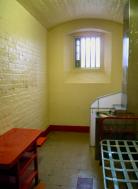The Trials of Oscar Wilde
Created by Kailan Carter on Fri, 04/23/2021 - 18:38
This timeline details the accusations against Oscar Wilde, and the three trials that he was involved in.
Timeline
Chronological table
| Date | Event | Created by | Associated Places | |
|---|---|---|---|---|
| Feb 1895 |
Queensbury calls Wilde a "posing sodomite"Queensbury, or John Sholto Douglas, was the 9th Marquess of Queensberry and the father of Oscar Wilde's lover, Alfred Douglas. Queensbury reportedly lacked respectability, as he was a loud atheist who gained fame from formulating rules for boxing. His oldest son committed suicide after a threat of being exposed for his homosexual affair, making Queensbury extremely sensitive to sexual relationships between men. He was certain that Oscar Wilde was a homosexual due to his flamboyant behavior, so he demanded Alfred Douglas cut off contact with him. When he refused, Queensbury responded by sending Wilde a letter at London’s Albemarle Club, addressed to "Oscar Wilde, posing sodomite". Wilde sued him for libel and lost, which was the catalyst for the next trials that resulted in Wilde being sent to prison.
Sources: |
Kailan Carter | ||
| 3 Apr 1895 |
Wilde's libel trial beginsWilde's first trial, Wilde v. Queensbury, began at the Central Criminal Court of England and Wales, commonly known as Old Bailey. Wilde repeatedly denied Queensbury's allegations of being a sodomite. When asked if he had kissed a young boy, Wilde replied that he had not because the boy was ugly, which the prosecution used against him to prove that he could be a homosexual. The prosecution then announced that they would be calling other men Wilde had slept with to testify, and following advice from his lawyer, Wilde dropped the case. Queensbury was found not guilty. However, due to the witnesses Queensbury had provided, Wilde was arrested on charges of gross indecency.
Source: |
Kailan Carter | ||
| 26 Apr 1895 |
Wilde's first criminal trial beginsThe Crown v. Wilde case began with Wilde and Alfred Douglas being accused of 25 counts of gross indecency and conspiracy to commit gross indecency. Many witnesses testified about their sexual acts with Wilde, even though Wilde continually maintained his innocence and plead not guilty. The prosecution asked for the meaning of "a love that dare not speak its name", a line in a poem written by Douglas, and Wilde's response was: "The love that dare not speak its name’ in this century is such a great affection of an elder for a younger man as there was between David and Jonathan, such as Plato made the very basis of his philosophy, and such as you find in the sonnets of Michelangelo and Shakespeare. It is that deep spiritual affection that is as pure as it is perfect. It dictates and pervades great works of art, like those of Shakespeare and Michelangelo, and those two letters of mine, such as they are… It is beautiful, it is fine, it is the noblest form of affection. There is nothing unnatural about it. It is intellectual, and it repeatedly exists between an older man and a younger man, when the older man has intellect, and the younger man has all the joy, hope and glamor of life before him. That it should be so, the world does not understand. The world mocks at it, and sometimes puts one in the pillory for it." Although this response seemingly incriminates him, the jury could not reach a verdict, and Wilde was released on bail.
Source: |
Kailan Carter | ||
| 20 May 1895 |
Wilde's third trial beginsFollowing pressure from the government to convict Wilde, he was back in court to face the same charges. Although the prosecution had dropped witnesses and seemingly had a weaker case, Wilde was found guilty. Both Oscar Wilde and Alfred Douglas were sentenced to two years in prison with hard labor, which was the maximum sentence.
Source: |
Kailan Carter | ||
| 25 May 1895 |
Wilde is sent to prisonWilde began serving his prison sentence on May 25, 1895 in Pentonville Prison. His wife and son changed their last names and fled to Switzerland, and newspapers continued to run stories about Wilde. While in prison, Wilde continued to write. Some of his work written in prison includes "Oscar Wilde on Prison Treatment", exposing the poor conditions of children in prisons, and "De Profundis", a love letter to Alfred Douglas. Following his release from prison, Wilde was poor, ill, and an alcoholic, and he died in 1900.
Sources: |
Kailan Carter |





